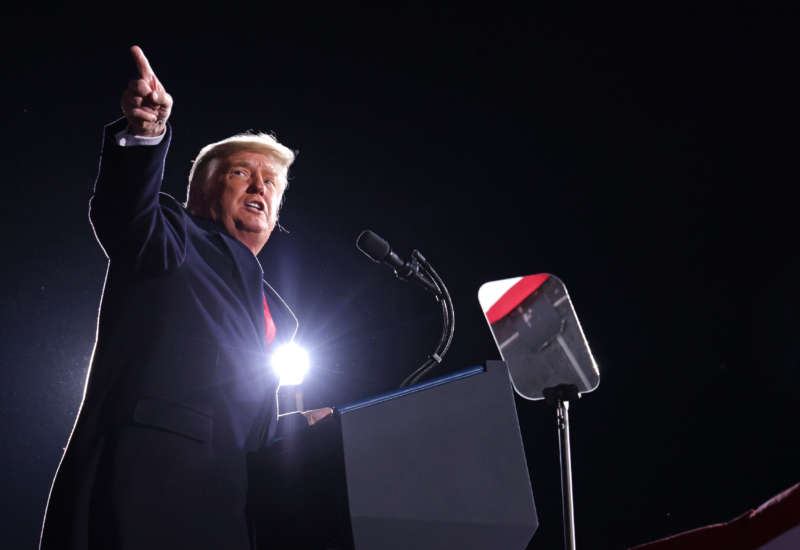On Thursday, a district attorney in Georgia filed a request for a grand jury in the investigation into former President Donald Trump’s attempts to compel Georgia election officials to illegally overturn the 2020 presidential election results.
When Fulton County District Attorney Fani Willis made the request to the county’s superior court, she noted that her investigation into Trump’s phone call to Georgia Secretary of State Brad Raffensperger required her to compel testimony from witnesses who have been less than willing to cooperate.
“We have made efforts to interview multiple witnesses and gather evidence, and a significant number of witnesses and prospective witnesses have refused to cooperate with the investigation absent a subpoena requiring their testimony,” Willis said in her letter to the superior court.
In response to this development, Trump compared his phone call with Raffensperger to a call he made to Ukrainian President Volodymyr Zelensky in 2019, which led to his first impeachment.
“My phone call to the Secretary of State of Georgia was perfect, perhaps even more so than my call with the Ukrainian President, if that’s possible,” Trump said, referencing his call to Zelensky, in which he suggested that he wouldn’t help Ukraine defend itself from Russian aggression unless its officials helped him find dirt on Joe Biden ahead of the 2020 election.
“I didn’t say anything wrong in the call,” Trump said, adding that he made the call “while I was President on behalf of the United States of America.”
Trump also suggested that the recording of his conversation with Raffensperger might have been illegal because he wasn’t informed that it was being recorded. However, Georgia law only requires one party in a phone conversation to be aware that a call is being recorded. The same “one-party consent” rule applies on a federal level.
The Georgia investigation began nearly one year ago, after news reports shared audio of Trump’s conversation with Raffensperger. During the call, Trump repeated numerous claims about election fraud that had already been proved false. He then pressured the secretary of state to “find” him 11,780 votes — the exact number that he needed to flip his loss to a win over Joe Biden.
Trump also made a number of vague threats toward Raffensperger and his attorney who was present on the call, saying that their refusal to cooperate with his demands would have consequences. Not finding him more votes would amount to a “criminal offense,” Trump told them.
In fact, Trump may have committed a crime in trying to compel state election officials to overturn the election in Georgia. According to state law, it’s illegal for anyone to solicit, request or command someone else to engage in election fraud.


